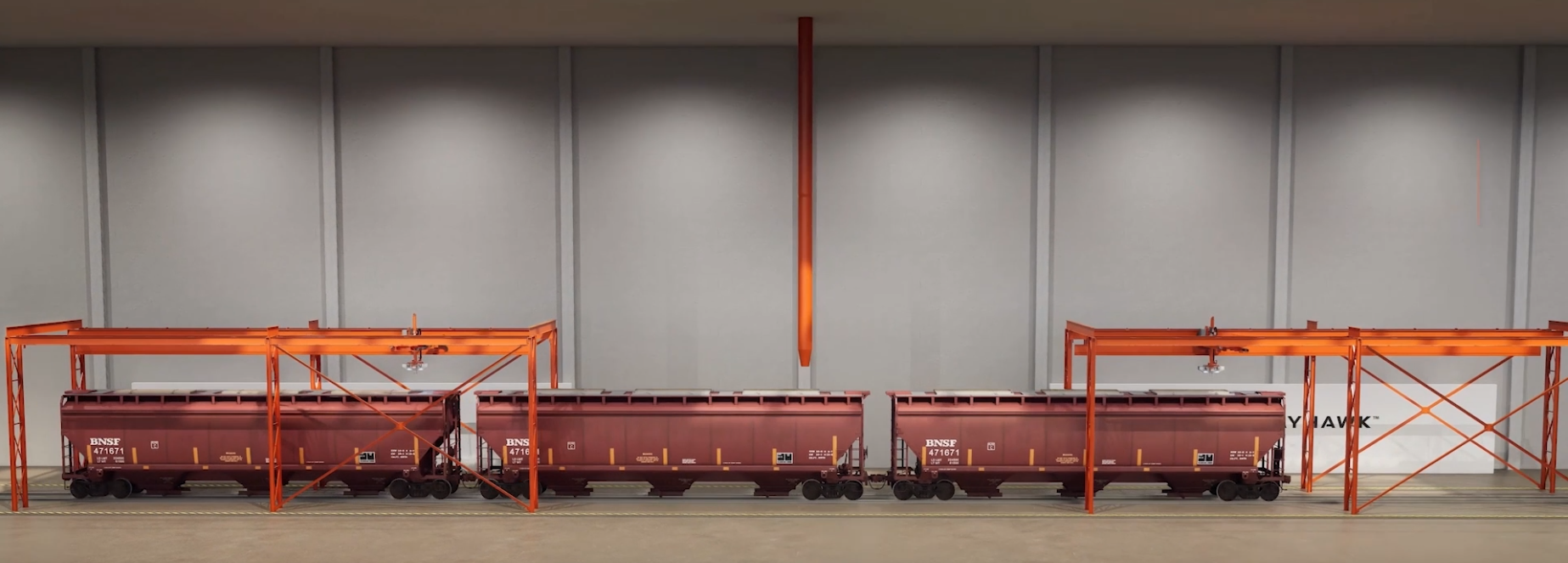Industry Challenges
Safety
Safety of employees is becoming of greater importance due to social commitments of large companies in ag/mining and related impacts of potential delays or shutdown
Loading on top of rail cars in unsafe hazardous conditions
Jumping from one rail car to another during live loading
Clearing of snow and opening of lids with crow bars on top of railcars due to ice build up
Employee fatigue due to train scheduling
Fall arrest only helps safeguard the employee from fall, but does not prevent back injuries, slips and falls
Insurance Costs
Owner/operators are facing increasing insurance costs (WCB).
Increasing stringent laws and regulations (OSHA) related to health and safety.
Regulatory Authorities are imposing significant penalties for non-compliance.
How does RAYHAWK work?
Advanced Feature Considerations
Cleaning/snow and debris removal from railcar lid
Seal removal
Car inspection
Sampling device
Opening of liquid railcar lids
The system is an intelligent gantry using multiple cameras. A vision system is used to detect the state for the latches and lid of each railcar. As RAYHAWK detects the moving latch, using object tracking, it uses motion control algorithms to open the latches and lids.
Utilizing:
3-axis industrial tool
Four servo motors
Programmable logic controller
Industrial computer
Vision system
Predictive maintenance modelling
Production
Loading is not 24/7/365
Non-efficient present loading procedures
Cost implications for efficiency
Lack of automation of systems during opening and closing of rail cars
Safety
RAYHAWK has various safety precautions including:
Delineating the autonomous area to eliminate operation when personnel are within the working area
Motor torque-limits to protect damage to motors and equipment
SIL-rated emergency stops
Skilled Labour Shortage
Industry is experiencing a competitive shortfall of available resources that is stretching across all industries.
We continue to anticipate a significant shortfall in skilled labour/general labour in the coming years.

